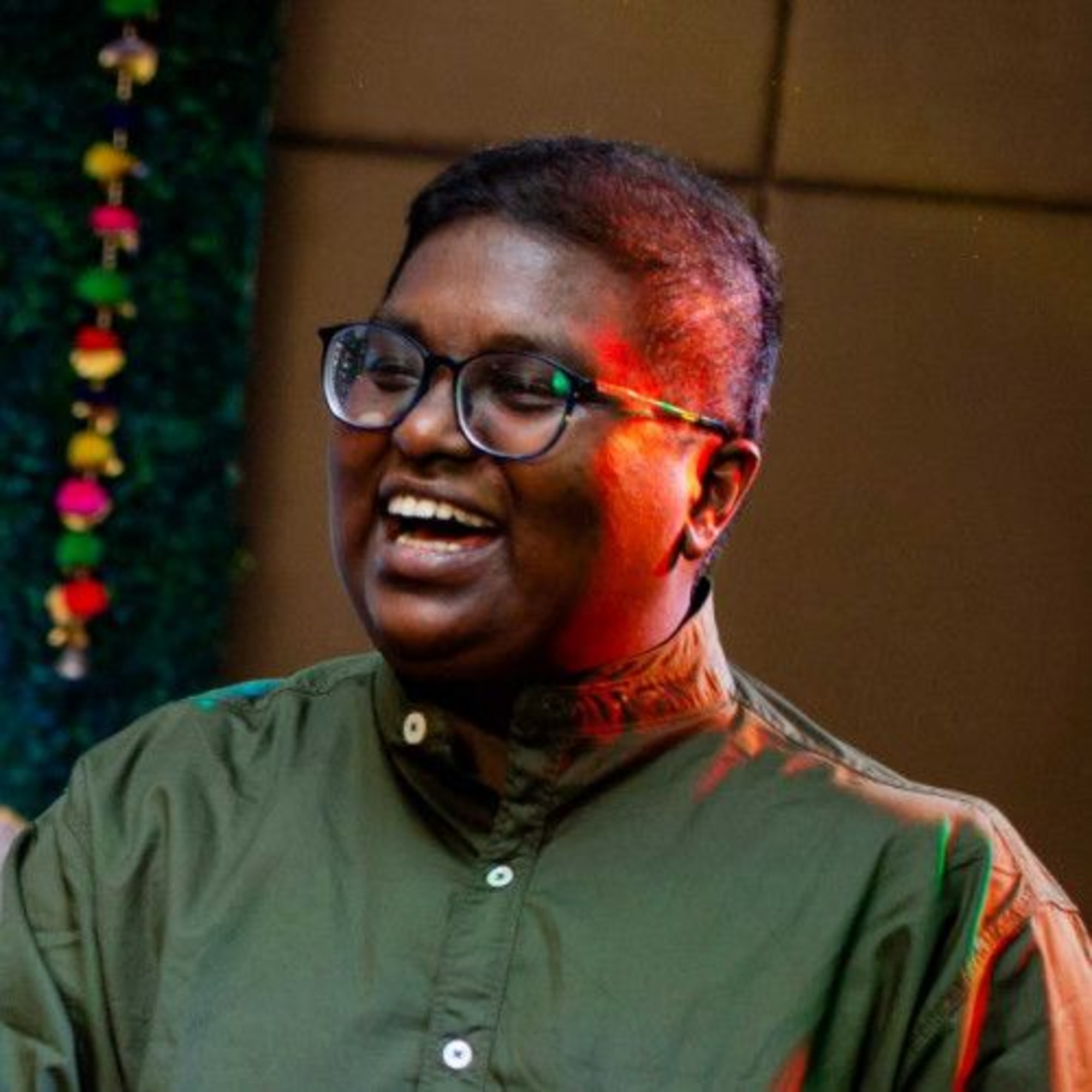Smita Vanniyar, a postgraduate from the Tata Institute of Social Sciences - Mumbai, works at the intersection of gender technology and sexuality. Smita recognizes that they can highlight the potential integration between digital rights and marginalized rights groups and speak passionately about the future the internet holds when it comes to being a feminist space. Their knowledge of the historical expression of freedom and ethics on the internet is profound and deep-rooted. Speaking from their personal experience, growing up in the United Arab Emirates, they did not have the scope to find people they could relate to. Finding the language to communicate what made them feel different from what society dictated was difficult. They credit their learning the term 'Gay' for the first time to a Chicken Soup for Teenagers book. They got access to a VPN (which can circumvent restricted access to websites) via their father's boss. Despite the inexplicable reasons behind such a move by an adult, it opened up an entirely new world for Smita. Having gone to a Catholic college in India, it meant that they had to be very careful about how and what was expressed. That is when Smita found a safe space for expression on the internet. If ten years ago they found the term lesbian to describe themselves, it has only been a mere two or three years since they came across the term non-binary as an identity because of the conversations taking place on the internet. They found their first friends from the community online; their first date was with a person they met online. They admit the journey of self-acceptance has "not been linear," but for them:
I would have been way far back in accepting my identity and understanding my politics and my thoughts if it was not for the people whom I met online. People way smarter than me.
According to Smita, the internet has provided such spaces for many to break the first barrier and experience the freedom of self-expression. It has allowed everything from niche Instagram pages, which discuss butch hairstyle management techniques during the coronavirus pandemic to help people facing dysphoria due to their lengthening hair, to community mobilization efforts across chat rooms and physical and digital pride marches. Smita plainly states that without the internet, many LGBTQ communities would not exist at all.
Physical world doesn't allow you to waver from the norms of existence.
While speaking, Smita showed an affinity towards giving importance to small details that matter even in the broader context. They did say that this access to the internet is not unlimited and without censorship. "The internet has gatekeepers." Smita works toward empowering marginalized sections of the community to sidestep these gatekeepers, who are usually men in positions of power. They are fighting for more equitable access to the internet for these communities. Although the people who hold prejudices in the physical world are the ones who hurl insults, make derogatory comments, and threaten the safety of others online. Smita and their team are trying to educate and raise awareness on the multiple ways to circumvent them. They say the internet will help shift this power. According to Smita, the internet needs to become feminist, and the rule of thumb for that is access to equitable rights. "The internet needs to become intersectional and queer." Pointing out the role anonymity and pseudonyms play in facilitating expression without fear, these become the right and responsibility of a person. However, they acknowledge that some misuse even this privilege.
We take inputs and learnings from the ground and take it to policymakers so that the lived realities are not ignored.
Smita has previously worked at the non-profit Point of View, where they have undertaken multiple workshops at the grassroots of society. They highlighted the importance of assessing the current environment and lived realities of people from marginalized gender identities, sex workers, and women from rural areas to understand their capacity and capability to adapt to new information regarding technology and its opportunities. Smita and their team adjust their agendas to fit the community's current needs and ensure the workshop facilitators are from the community itself. The goal is to first build capacity and resilience in the spaces they already occupy and then give alternatives for a different and better space. Understanding that many of their participants are from rural areas, they realize that theoretical knowledge can only take them so far, and practical hands-on learning yields more fruitful and sustainable results.
The ultimate idea is that women, people of marginalized genders and sex workers shouldn't be silent bystanders on WhatsApp groups and the internet.
Smita also acknowledges books as a huge part of their journey of self-acceptance. From Chicken Soup to devouring lists of 'best lesbian novels,' they have enjoyed reading young adult books (compensating for when they couldn't read them as a young adult themself) and listed out 'Fierce Femmes and Notorious Liars' and 'Aristotle and Dante Discover the Secrets of the Universe' as fantastic books. However, their pet peeve remains that most characterization of queer people in fantasy genre books is gay men. They also put the spotlight on the importance of writing for them, saying, "Writing helps me find out the nuances in what is bothering me." Calling themself a nerd, who is sometimes cynical internally, but hides it well, they say that all they need is a little bit of air conditioning, books, and the internet to be more than happy.

